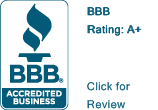Bankruptcy vs. Debt Consolidation
 With the recent downturn in the real estate market and home values, the economic recession and record-high unemployment levels, consumers continue to struggle with insurmountable consumer debt.
With the recent downturn in the real estate market and home values, the economic recession and record-high unemployment levels, consumers continue to struggle with insurmountable consumer debt.
Millions of people are facing extreme levels of financial stress that can deeply affect their daily lives, disrupt families and take a heavy toll on their emotional and physical well-being. Sadly, many people faced with crushing debt and a bleak financial future, fail to take action to alleviate their financial crisis, which results in a snowballing scenario in which their problems only multiply.
The reason most often cited for not addressing one’s financial troubles is confusion, or a lack of understanding as to what options may be available. Bankruptcy vs. Debt Consolidation: Two of the most common choices for alleviating the financial burden of crushing debt include either filing bankruptcy, or entering into a debt consolidation agreement.
Debt Consolidation
To begin to determine if a debt consolidation program will even work in your situation, there are several factors to consider. First and foremost is if you will be able to afford it. If your current income is not enough to adequately cover your fixed monthly living expenses, like mortgage or rent payments, car payment or other transportation costs, insurance, food, medical costs and utility payments, you obviously will not have sufficient expendable income left over to apply toward a debt consolidation payment each month. Also, you generally need to have at least $7,500 worth of outstanding revolving or unsecured debt in order for debt consolidation to make sense, or in some cases, for your creditor to even consider working with you and your attorney. A bankruptcy attorney can work with you to detail all of your expenses and assess your income to discover if a debt consolidation makes sense for you.
With the proliferation of debt-laden families across the country, many dishonest business entities have sprung up in recent years, promising to work with you and your creditors to reduce or eliminate your debt over a period of time. There are businesses out there that call themselves “credit counseling services” or “debt reduction services”, but are actually in business to charge you unreasonable fees, profiting from your unfortunate situation. Using one of these types of businesses may seem like a legitimate source of relief and a smart way to get out of financial trouble. However, many people who enlist the services of such “debt-reduction” companies, find that the debt owed to their creditors is not being appreciably reduced, or that they are actually placed into a debt consolidation program that they cannot afford. Sadly, such program frequently do little more than line the pockets of the “credit counseling” agencies.
While there are legitimate debt reduction programs and services available in today’s marketplace, many people are surprised that the hiring of an experienced attorney who is well-versed in negotiating with credit card and other consumer debt companies may actually be a more effective, and even less costly, alternative. A skilled legal professional with an in-depth understanding of consumer protection laws and debt repayment options, will be able to successfully work with your creditors to establish a repayment plan that you can live with, and that won’t end up costing you more in the long run.
The goal is to define a specific time frame in which you plan to pay off your debt, with payments you can afford to maintain. Entering into such an agreement with the guidance of the right attorney can stop the harassing phone calls from your creditors, ensure that you are not paying exorbitant administrative fees to a disreputable credit counseling service, and eliminate things like mounting late payment charges and fees for being over your allotted credit limit.
A correctly-established debt reduction program will result in the reduction of the interest rates your creditors are assessing you, and allow you to simply write one affordable check each month in order to pay off all of your outstanding debt. Further, the administrator of your consolidation plan can handle all of the necessary paperwork, and deal directly with your creditors to ensure you are receiving the maximum advantages available.
Bankruptcy
Although it may be true that the term ‘bankruptcy’ carries with it certain negative connotations and related stigma, it is far less true in today’s economic environment. In some circumstances, filing for bankruptcy protection in order to reduce or even eliminate your debt may be your best option for moving forward, and getting your financial life back on track.
In most scenarios, people facing consumer debt that they are unable to pay can file for one of two forms of personal bankruptcy – Chapter 7 or Chapter 13.
According to the U.S. Courts, bankruptcy filings in the federal courts rose 31 percent in calendar year 2008. The number of bankruptcies filed in the twelve-month period ending December 31, 2008, totaled 1,117,771, up from 850,912 bankruptcies filed in 2007. There are many mitigating factors that may lead someone to filing bankruptcy, including divorce, loss of employment, and medical bills.
A Chapter 13 bankruptcy involves the structuring of a repayment plan designed to significantly reduce or pay off any outstanding consumer debt, generally over a span of between 3 to 5 years. This plan, sometimes called a “wage earner’s plan”, is often used by people who are employed, yet are still unable to successfully meet all of their consumer debt obligations. They are relieved from the unending collection phone calls and other methods of debt collection used by their creditors.
Under Chapter 13, the court will appoint a trustee who is charged with working with your creditors to outline the details of how much you owe, how much you will be asked to pay them back, and the time frame in which you will be expected to pay it. A hearing will be held, at which the courts approve the plan. The person then pays the trustee an agreed-upon amount each month, and the trustee pays the appropriate creditors as outlined in the agreement.
Chapter 7 bankruptcy may be your best option if your debts are insurmountable, or if you are not employed, or not receiving regular income. Chapter 7 will not only protect you from your creditor’s debt-collection efforts, but in most cases your outstanding debt will be fully discharged and you will no longer be held legally liable for repayment. In Chapter 7, the person is usually allowed to retain assets such as their home, car and certain other personal possessions. However, there are some debts that will not be allowed to be discharged under Chapter 7, including taxes, student loans, and alimony or child support payments.
While it can be seen by some as something they would never consider, filing for bankruptcy does provide distinct benefits for those who simply see no other option for paying down their unsecured debt. If a creditor has instigated any legal action against you in an effort to collect on a debt you owe, those proceedings must stop once you have filed bankruptcy paperwork with the court. And, your creditors will be unable to begin any new legal actions against you. Once you have filed, your future wages and earnings will be protected from the creditors that were listed on your filing paperwork.
Filing any form of bankruptcy will show up should someone do a background or credit check on you, and your credit rating will be negatively effected, making obtaining credit difficult for as many as ten years after you have filed. Yet, for some, filing bankruptcy may be the most advantageous option in their efforts to get out from under a mountain of debt they cannot possibly repay, and get their financial future back on track.









